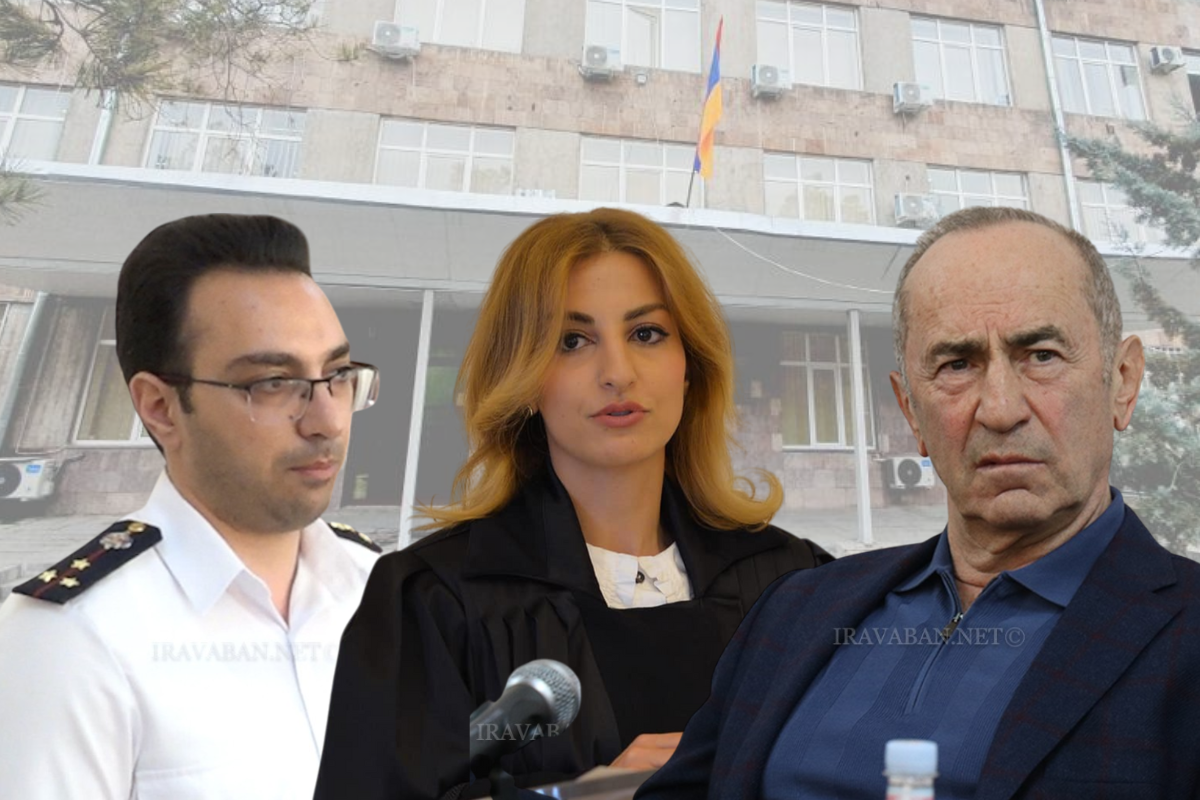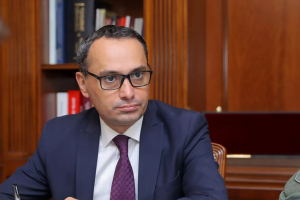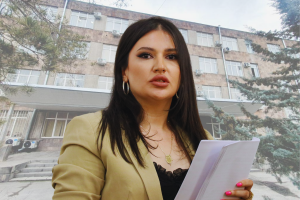In the Anti-Corruption Civil Court, under the chairmanship of Judge Narine Avagyan, today – June 10, a session was held on the case of forfeiture of illegally obtained property of the 2nd President of the Republic of Armenia Robert Kocharyan and persons associated with him.
According to Iravaban.net, at the previous session, the responding party had submitted a motion to apply accelerated trial proceedings in the case, regarding which prosecutor Hamlet Harutyunyan from the Prosecutor General’s Office Department for Forfeiture of Illegally Obtained Property took a position.
He objected to the motion, requesting its rejection, building his position on the basis of facts expressed in the Constitutional Court decision.
As stated in the Constitutional Court decision, the forfeiture of a person’s property pursues two purposes – the fight against crime and corruption. Harutyunyan emphasized that the high court clearly underlined that although these two purposes are independent and significant from the perspective of the pursued interest, they do not exclude each other through the application of procedures and processes provided by law, and can appear both coinciding or complementing each other, as well as separately: “The Constitutional Court gave a clear example – ‘for example, in cases of persons related to corruption-related crimes, who are officials in the sense of the law.'”
According to him, the Constitutional Court classified the prevention of corruption and the restoration of damage caused by it through the forfeiture of illegally obtained property acquired by officials in the sense of the law among the purposes of pursuing public interest provided by the Constitution.
“Considering the issue of compliance of all regulations of the law with the Constitution, the Constitutional Court did not recognize as unconstitutional Article 10, Part 3 of the ‘Law on Forfeiture of Illegally Obtained Property,’ which provides that the completion of criminal proceedings running parallel to the proceedings, including the issuance of an acquittal verdict, or the termination of criminal proceedings on acquittal grounds, or the cessation of criminal prosecution are not grounds for terminating the proceedings for forfeiture of illegally obtained property,” said Harutyunyan.
According to the prosecutor’s assertion, if one purpose is absent, the other purpose can operate, and accordingly, the proceedings for forfeiture of illegally obtained property should continue. He cited another ground for rejecting the motion, saying that the Constitutional Court decision is grounds for reviewing even a verdict that has entered into legal force, and in the case when it comes to an ongoing case, that decision should all the more provide an opportunity for the party to align its position with the rules established by the high court.
He also referred to the episode of alleged bribe receipt given by Samvel Mayrapetyan to Robert Kocharyan, emphasizing that the result of the alleged act is economic benefit: “In the criminal case, R. Kocharyan was involved as a defendant for the fact that from April 9, 1998, to April 9, 2008, while holding the position of President of the Republic of Armenia, using his official position to assist in carrying out actions in favor of Silva Hambardzumyan, the sole participant and director of ‘T-S-S-C Armenia’ LLC, namely, for not preventing the sale of 100% of the company’s shares to a non-resident company in the Republic of Armenia under special licenses granted to that company for the purpose of exploiting mineral resources, in February and May 2008, with the assistance of Samvel Mayrapetyan, he received from him a particularly large-scale bribe of $3 million equivalent to 927 million [Armenian drams].”
The representatives of the respondents did not accept the plaintiff’s objections, themselves also making reference to a number of essential legal regulations in the context of the Constitutional Court decision.
Aram Orbelyan stated that, unlike the plaintiff’s interpretation of the Constitutional Court decision, the Constitutional Court recorded that the other provisions of the “Law on Forfeiture of Illegally Obtained Property” disputed by the applicant, within the framework of the justifications presented regarding them, comply with the Constitution according to the results of abstract verification of Constitutional compliance.
The lawyer, with his position, referred to three circumstances: the possibility of changing the basis and subject of the claim, how the study regarding an official is implemented, and whether there is any connection in the lawsuit with the alleged crime.
According to the respondent’s representative’s assertion, his client could not have received criminal income during those years, and the connection between the property to be forfeited and the alleged crime is absent in the basis of the lawsuit. According to him, regardless of the 2 purposes presented in the Constitutional Court decision, the law establishes appropriate procedures for checking and starting studies of officials.
After hearing the parties’ positions, the court decided to reject the motion. Presiding Judge Narine Avagyan cited Article 303, Part 8 of the Civil Procedure Code, which provides for the grounds for applying accelerated trial proceedings.
According to the mentioned regulation, in the absence of the need to question persons participating in the case, witnesses, experts, or specialists, to examine evidence at the location where it is found, or to give judicial assignments, the first instance court has the right to apply accelerated trial proceedings if: the claim is obviously unfounded, if the claim formulated in it is obviously unlawful (obviously subject to rejection regardless of the facts underlying it), or obviously subject to rejection based on the facts underlying it by the plaintiff, or has been submitted by an improper plaintiff or against an improper respondent (hereinafter – obviously unfounded claim).
The session was postponed, the next one will take place on June 30.
Mariam Shahnazaryan


















